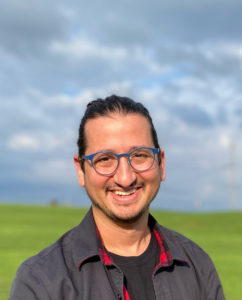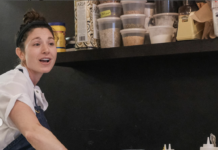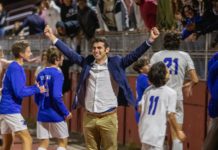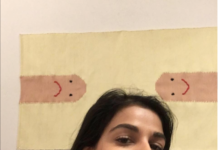
When Eli Robbins moved to Philadelphia in 2014, his first job was designing animal habitats for local zoos.
After receiving a bachelor’s degree in architectural studies and a minor in studio arts at the University of Pittsburgh, the Hershey native moved to Portland, Oregon, where he earned a master’s in architecture from the University of Oregon.
During his time at design firms in New York after graduate school, Robbins, 32, honed a passion for experience design, combining software and architecture to build digital and physical user-friendly spaces, such as animal habitats, museums and office spaces.
A 2021 Tribe12 alum, Robbins recently launched Civio Studio, a design agency with a focus on creating accessible spaces and technologies, influenced by Robbins’ own experience being paralyzed in early 2020.
When did you come up with the idea for Civio Studio?
I mean, it really came from my own lived experience. In the beginning of 2020, early February, I was diagnosed with Guillain-Barré syndrome.
What was your experience with Guillain-Barré syndrome?
I was working at a design company called Primer Design. When I was working there, I started having a series of very unusual symptoms that happened very rapidly and kept piling on.
It started with a numbness in my mouth and then a tingling in my hands, and just kind of a powering down. Over the course of five days, I became paralyzed.
Long story short, I was in the hospital for a couple of months. I was barely able to do anything; I couldn’t even really hold my phone. But it was a slow process of getting out of that and, fortunately, it’s treatable.
How did your experience with GBS impact the development of Civio?
When you go through something like this, a significant life experience, it kind of makes you reflect on what’s important.
I wanted to refocus the work that I was doing on work that had meaning — down this path of really trying to understand accessibility on a much deeper level. That pushed me into two directions: One direction was developing a product; I’ve always wanted to teach myself how to become a [user experience] designer, and I also realized that I wanted to start my own design agency. So that pushed me into starting Civio Studio.
And the other thing that happened was I started to develop this web app called civio.io, which was really trying to solve problems that I had when discharged from rehab.
What problems were those?
Once you get discharged, you’re just sort of on your own, and it’s really up to you to get the devices you need, to make all of your appointments, to figure out how to exist in your home that you previously existed in as a more able-bodied person.
And one small part of that problem is getting the actual assistive technologies and the medical equipment — these are all the things that you need to start living independently again. For some people that might be in a wheelchair; it could be a walker, canes; it could be software if you’re blind. It can be any number of things, but there isn’t a very streamlined process from leaving rehab to acquiring those things. That was the problem I’m trying to solve with civio.io.
How has your Jewish upbringing and values impacted your desire to create accessible spaces and designs?
There weren’t a lot of Jews that I grew up near. We call ourselves “ATJH” — all the Jews in Hershey — which was a really tight-knit group of people.
I was really involved in [United Synagogue Youth] and became the regional president for the eastern Pennsylvania region. There’s a whole position on the board of USY for repairing the world. So, that was always a fundamental understanding I had, that a part of fundamentally being Jewish is thinking about, “How do we repair the world?”
My father was a physician; he passed away in April. [Tikkun olam] was his whole life. He was a corneal surgeon. And I think about just how many eyes he helped see. He’s also the son of a Holocaust survivor. That was something that was a fundamental part of our family’s view of the world, our Jewishness.
[email protected]; 215-832-0741






